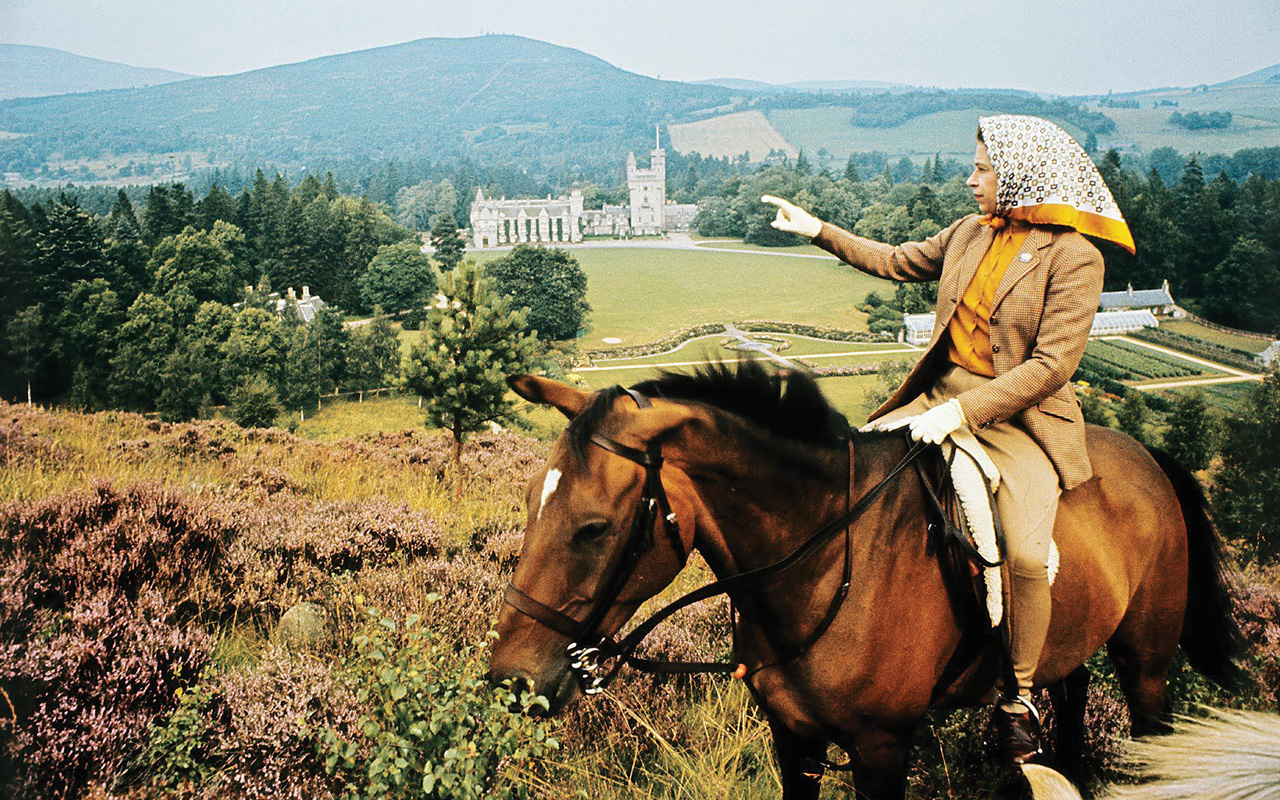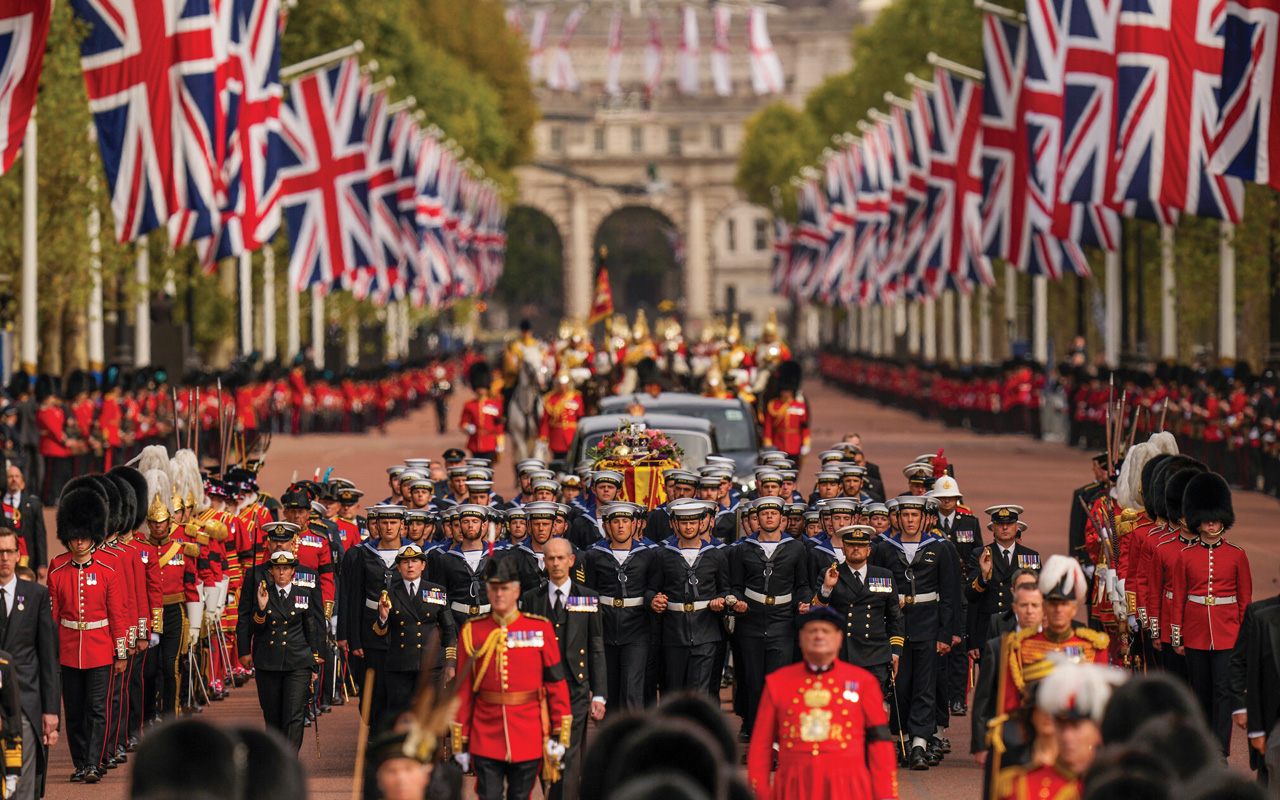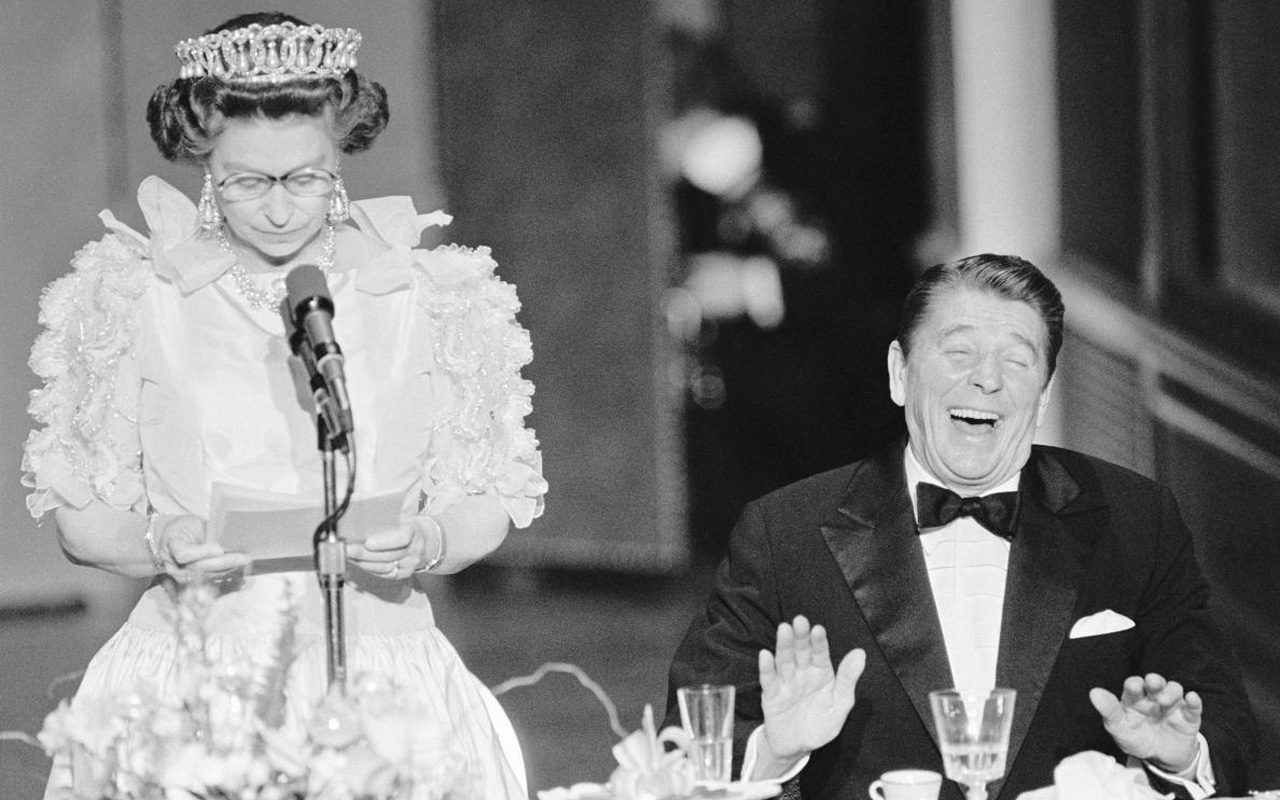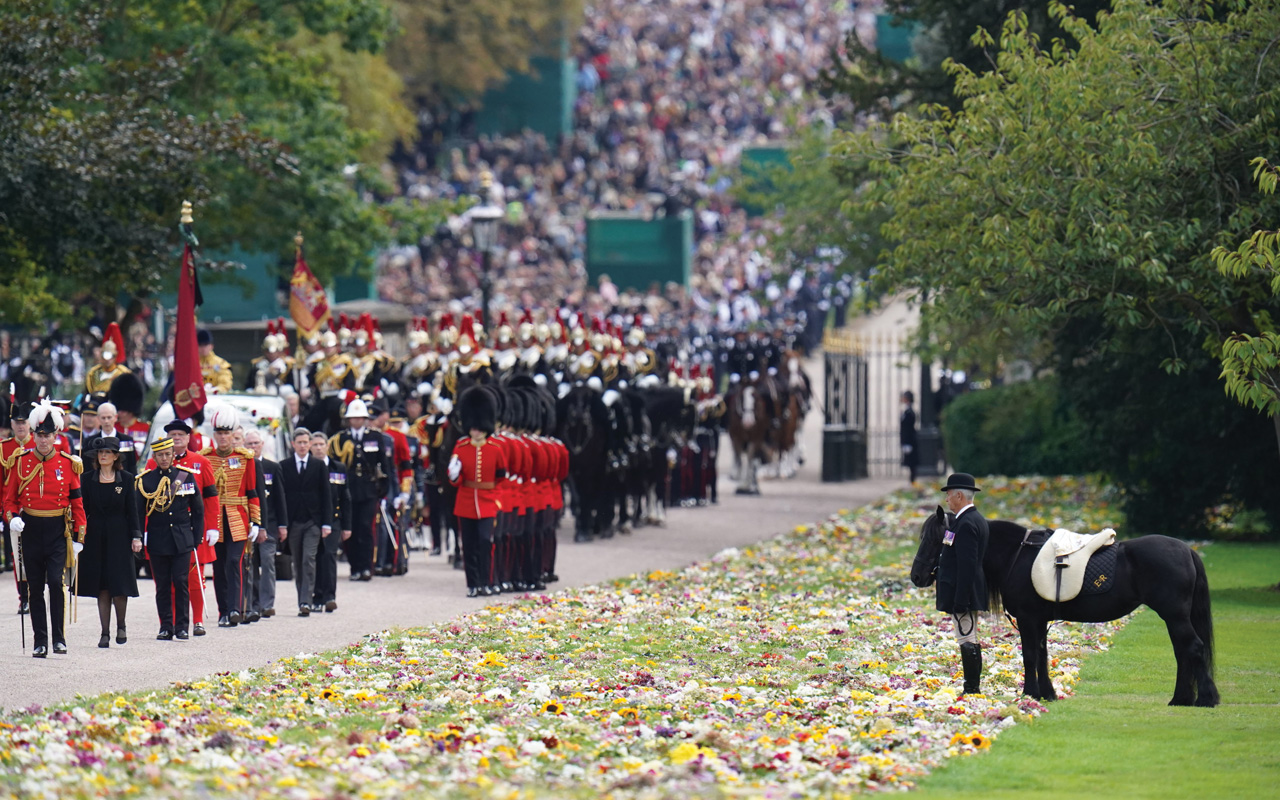
The death of Queen Elizabeth II has marked the end of the Elizabethan era in the United Kingdom – but more significantly – the world has lost one of its most respected and crucial leaders – the likes of whom we will never see again.
Queen Elizabeth became the surety the world needed in her extensive 70 years on the British throne. Even before her coronation in 1953, she was a steadfast, comforting figure through catastrophic times including the devastation of World War II during which she signed up as a mechanic for London’s ambulances. She was compulsively brave and consistently reassuring.
The reason this monarch’s leadership was so important is that she became a rudder for leaders across the world. She was that confidential safe place they could go to for advice or to unload their burdens. She rose above the murky waters of partisan politics and provided wisdom and perspective to the world’s most powerful leaders. She was highly informed and carefully measured in all her responses. She was devoid of vanity or an ego. She served others without any agenda, and displayed the most admirable characteristics of empathy, kindness and understanding. She was non divisive and the great unifier of our time. Queen Elizabeth’s stature as a human giant filled with integrity is non-debatable.
She mastered the art of soft power – displaying it most significantly in Northern Ireland. After decades of bitter conflict, she offered an olive branch to the leaders and people of that territory. Politicians on both sides of the border recalled her landmark visit to Dublin in 2011where she was rapturously welcomed by the Irish, and she shook hands in 2012 with Martin McGuinness, the leader of the Irish Republican Army (IRA) turned deputy first minister. The gesture was magnanimous when one considers that the IRA killed her much-loved cousin, Lord Louis Mountbatten, in 1979 when they blew up his fishing boat.
Leadership is enhanced with the combined attributes of forgiveness, resilience, stoicism, and kindness. As the Queen faced the challenges of new decades demanding new styles of leadership in the royal family, she adapted and changed. The old-fashioned concept of maintaining the mystique of the royal family was overturned to make way for a more relatable style. For the first time, the world was able to view the family life of the Windsors as television cameras broadcast their daily lives. Far from damaging the public’s view of them, it enhanced it. We all felt we could relate to them and this window into their lives created a bridge – rather than a shut door. On the celebration of the Queen’s 70th Platinum Jubilee in the summer of 2022, her realization that she had to keep up with the advancements in accessibility was evident in her charming tea-time skit with Paddington Bear. Her humor was on full display as she took out her marmalade sandwich and enjoyed a civilized interaction with the beloved Paddington Bear. Both adults and children loved it.
When Covid-19 took down the world in 2020, the Queen broadcast a message worldwide – very similar to the message she broadcast as a child during World War II. It was a reassuring message of hope in which her strength abounded. She said with the firmest resolve that we would all get through this pandemic and that we would see each other again. She lost her husband and the love of her life, Prince Philip, during the pandemic, and the world watched with empathy and admiration as she sat alone at St. George’s Cathedral, weathering the biggest storm in her life with fortitude.
This great woman ascended the British throne at the tender age of 25 following the death of her father, King George VI. Sir Winston Churchill was the Prime Minister of Great Britain at the time, and it must have been daunting for her to face this much older, iconic man who had led Britain triumphantly through the war. She mustered up her courage and her information base to win Churchill’s respect. That was a feat in of itself and she went on to serve her country through 15 Prime Ministers. The Queen dedicated herself completely to the service of her nation and to the British Commonwealth. She was also hospitable and welcoming to the myriad of international leaders who visited with her and sought her wisdom and advice. She thought deeply before speaking, had a great sense of decorum, and never acted impulsively or erratically. She was dignified and gracious – always.
The death of Queen Elizabeth II has marked the end of the Elizabethan era in the United Kingdom – but more significantly –
the world has lost one of its most respected and crucial leaders – the likes of whom we will never see again

The coffin of Queen Elizabeth is pulled past Buckingham Palace Photo: Vadim Ghirda AP
But it was Queen Elizabeth’s sense of humor and the sparkling twinkle in her eye that most enchanted world leaders and diluted so many tense situations. When she visited President Ronald Reagan in 1983 in California and enjoyed a horse ride with him on the Reagans’ Rancho Del Cielo, she wryly quipped about the lousy Californian weather and in so doing, brought down the house during her speech. She was self-deprecating and always ready to see the humor when others were too mired in their own sense of importance.
In a history-making 70 years as the longest-serving British monarch, the only time criticism was ever leveled at the Queen was after the death of Princess Diana. The British public were angry that she did not come down from Balmoral Castle to Buckingham Palace and central London – to show her grief and share in the public’s palpable grief. At the time, she made the decision to stay at Balmoral so that she could protect her grandsons, William and Harry, from the devastation of their mother’s death. What the public perceived as an insensitive and uncaring decision was quite the opposite: the Queen’s priority was to keep William and Harry sequestered at Balmoral – away from the public glare. She put their needs first. When she realized that her people needed her in London, she changed course and delivered a heartfelt speech upon her return. She astutely read the temperature in the country and realized that a change in course was necessary. Gone were the days of the monarchy showing a stiff upper lip and canceling out any public shows of emotion. The public needed to see their Queen grieving alongside them. It was an important turning point in her reign.
The British Commonwealth has undergone vast ideological changes in the time that Queen Elizabeth has led it, and she has been empathetic and sensitive to those changes. Gone are the days of a vast British Imperial Empire. When former British colonies in Africa began to demand their independence from Britain in the 1950s, Queen Elizabeth supported the changes and granted them their independence. In March 2022, William and Catherine visited Belize, Jamaica and the Bahamas and were confronted by protesters demanding reparations for slavery and the full cutting of formal ties with the Queen. Prince William responded by expressing his profound sorrow for the appalling atrocity of slavery – a stain on Britain’s history. These moments of reckoning are vastly important. The Queen has been fully cognizant of the need for change, and she has spearheaded substantial progress in her 70 years.
For the anti-monarchists who claim that the House of Windsor is costing the British taxpayer too much money, they need to consider that the world is fascinated with Great Britain because of the monarchy. This ancient institution brings in millions of pounds in revenue each year through booming tourism that is driven by the grand history and traditions of the British Monarchy. People are in awe of the pomp and circumstance that is central to this vast civilization.
Beyond that, Queen Elizabeth and her family have worked tirelessly for British charities. This is a hardworking family who devotes extensive time and resources to organizations that would be substantially poorer without them. Furthermore, although the Royal family isn’t required to pay income tax, under a political arrangement reached by the Queen and the government in the 1990s, they volunteered to pay tax.
Upon Queen Elizabeth’s death on September 8th, 2022, the immediate and visceral outpouring of grief across the world was far greater than anyone could have forecast. And yet it was not surprising. Everybody – no matter their political persuasions – paid their respects to a truly dignified and magnificent public servant who was the definition of humility and dedication. She put the country and her duties before anything else – and made exceedingly difficult decisions even when it came to putting the needs of others before her family members. She, no doubt, made huge personal sacrifices in order to serve her people completely and without reservation. The magnitude of grief shown in the United Kingdom in the ten days after her Majesty’s death was a revealing testament to the impact her life held.
When she visited President Ronald Reagan in 1983 in California and enjoyed a horse ride with him on the Reagans’ Rancho Del Cielo, she quipped about the lousy Californian weather

Queen Elizabeth with Ronald Reagan Photo: Diana Walker/The Life Images Collection/Getty
Queen Elizabeth’s September 19th, 2022 state funeral showcased the sense of collective grief that was felt across the world. We all knew that this grand lady was 96 years old, but we secretly hoped that our resilient matriarch would live on forever. She represented continuity and was the reassuring presence that we came to rely upon for hope and certainty.
As millions of people lined the streets of London and watched her Majesty’s coffin being brought in so dignified a manner to Westminster Abbey – the grand cathedral in which Queen Elizabeth was married and coronated – there was a deeply respectful silence to pay tribute to an extraordinarily special leader. There were also cheers and clapping – sounds of the public’s enormous gratitude to their commander-in-chief. The perfection of the services and the cortèges through the streets of London to Buckingham Palace and then to Windsor Castle was visual confirmation of the dignity and magnificence of Queen Elizabeth and the royal family she represented.
While her son, King Charles III, will soon be coronated to continue his mother’s service, it is the new Prince and Princess of Wales, William and Catherine, about whom I am most excited. The very special grandson of Queen Elizabeth and the eldest son of Princess Diana, continues to authentically display the most admirable of human characteristics. Far from being mystical, William has truly allowed himself to be human, vulnerable, and present – and his human touch with the public is of inestimable value. Despite his massive exhaustion in the days following Queen Elizabeth’s death, together with his father, he showed up to spend hours interacting with members of the public who came to show their respects. He shared with them the painful memories that came back when he walked behind his grandmother’s coffin – a reminder of the excruciatingly painful day he walked behind his mother, Princess Diana’s coffin, in 1997. While Prince William was interacting with mourners, Princess Catherine showed her massive heart with an 8-year-old girl named Elizabeth, who came to show her respects to Queen Elizabeth by bringing a stuffed Corgi to Buckingham Palace. Catherine kindly took the little girl’s hand and suggested that, together, they could find a special place to put the Corgi and bouquet of flowers. The little girl cried afterwards – overcome with emotion at the significance of Catherine’s caring touch.
The Queen has adored her Corgi dogs lifelong, and so it was particularly fitting that her two Corgis, Muick and Sandy, were brought outside of Windsor Castle, to bid farewell to their mother. Also present and waiting for the final farewell was the Queen’s Fell pony, Emma. Those small touches amidst the grand pageantry and perfect decorum of the state funeral, reminded us of the immensely human lady behind the crown.
The Queen had particularly strong faith, and for those of us who have faith, there can be no doubt that when she passed from this earth, she was welcomed to the next life with the words, “Well done, my good and faithful servant. In you I am well pleased.” This dutiful monarch has served her people with distinction and there will never be another leader of her stature.
Acknowledgments: Theguardian.com
Prince William shared the painful memories that came back when he walked behind his grandmother’s coffin – a reminder of the excruciatingly painful day he walked behind his mother, Princess Diana’s coffin

The Queen’s favorite horse Emma looks on as her body arrives at Windsor Castle one final time. Photo: Andrew Matthews – WPA Pool Getty Images






